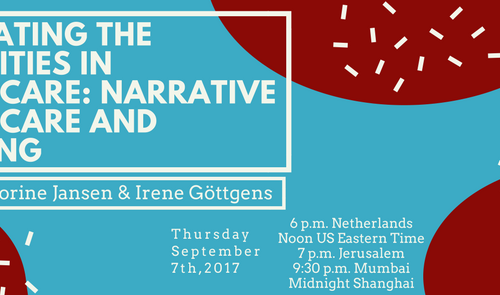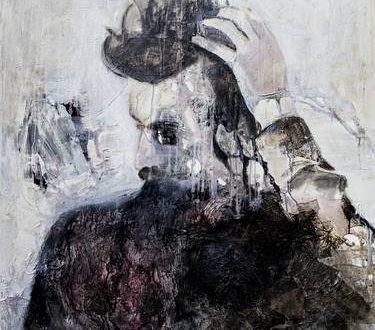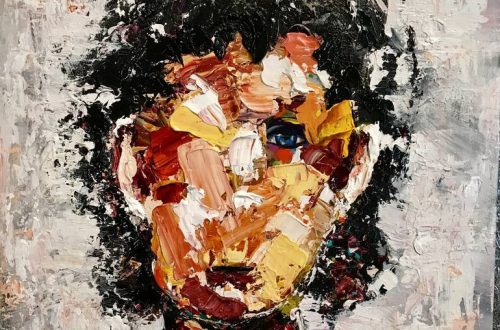
More human
Sometimes, the most radical act in a noisy world is to ask a question that doesn’t seek to control or fix but to see. To ask in a way that the other person feels real, even to themselves.
Appreciative Inquiry (AI) is often misunderstood as feel-good positivity. But it’s a research-based practice grounded in systems thinking and ethics. Developed by David Cooperrider, AI starts from a deceptively simple premise: that we grow best not by fixing what’s broken, but by amplifying what gives life.
It’s the difference between asking, “What’s wrong here?” and “When did you feel most alive in your work?” One narrows. The other opens.
This isn’t naïveté. Researcher Gervase Bushe demonstrates that AI is most effective when it encompasses the entire conflict, including pain and potential. But it chooses to begin with vitality. That choice is design, not denial.
At its core, AI is also an ethical act. Philosopher Emmanuel Levinas reminds us that responsibility begins with the face of the Other, not in theory, but in relationship. Listening, then, becomes an act of presence, not performance.
It takes courage to ask appreciative questions. It takes skill to hold silence long enough for someone to remember who they are. But when we do, something shifts. People soften. Leaders recognize their humanity.
In a world hooked on critique, AI is not about avoiding the hard stuff; it’s about creating space for what still matters.
And so I return to this quiet truth:
What you ask me makes me visible to you.
And maybe, if we listen well enough, it makes us all a little more human.
After posting this blog I got respons:
“But wouldn’t to make yourself present in the eyes of the other necessarily need a performative component? And that this performance comes first and the presence second?
Someone might be ‘ontologically present’, but what would this matter if the other does not sense it as such.
To show your presence one must perform it. And this performance of presence is learned in such a way that can be mutually recognized as such. This can only be learned from a ‘higher power’ (culture/society) that from a top/down manner molds individuals in a mutual understanding of the world and a mutual representation of it through performance (symbolic expression).
We enter a world already predefined by interests of dominant groups where things can become redefined by other groups with particular interests. It is these definitions that we absord and therefore also the implicit interests of groups.
Without the impression management of the performance the presence is meaningless and renders listening in a way that is ideal and would not do justice to what listening is. Behind these performances there lie interests, often fairly darks ones relative to other groups. Listening is much darker than we wish to acknowledge.”
I responded to him
Perhaps it’s true that presence always carries a performative element. But then I wonder: can performance not also be a kind of offering? A gesture toward the Other, to make oneself visible, as a bridge. A way of saying: “I am here to meet you.”
We listen as who we are: shaped by history, culture, trauma, position, privilege. Even our silences carry weight. Listening happens within systems, within asymmetries. Claire Yorke writes about how even empathy can be used strategically, and Levinas too reminds us that the face of the Other calls us into responsibility, an uneven relationship from the start.
But I also believe this isn’t the whole story.
There are moments where listening becomes freeing, because we choose to soften it. We’re going to suspend our judgment. We slow our pace. We create space. And in doing so, we offer something that allows the other to breathe, to become visible even to themselves.
That isn’t powerless listening. That is ethical power. Held with care, not control.
Yes, presence might require performance. But let that performance be shaped by humility, not domination. Let it be something we do with the other, not to them. Not to appear purebut to become, together, more human.And he responded back
But what is the offering? We have often misconceptions of what is truly offered. What seems to be offered at the interpersonal level does not necessarily reflect what is offered at the collective level.
What are the interests or motives behind “I am here to meet you” or “to suspend judgement”? To help someone? To relief someone from a burden? To satisfy a demand? To let them breathe? To care for them? But why? Who benefits from this and for what reasons.
Such practises might be educated not necessarily to benefit the individual but the collective or a group in power such that the benefits for the individual in turn benefit the group. But the average individual will not think further than what it does at the interpersonal level or sees the effect at the collective level as moral or good.
I was not allowed to become a part of an organisation because I refused to go through a necessary training on listening, one that I deemed as inhumane. Why was I not allowed to participate in their organisation? Likely because I showed that I cannot execute their interests.
What is ethical to one might be oppression to another.
Sociology reveals the dark side of listening in practises we believe to be ethical and moral.
And we continued. I wrote him:
I sense the depth of your reflection. That lens is important. It unsettles, and it deserves to be heard.
Your question: “What is truly offered?”, stays with me. There is something sacred in asking it. And yet, I find myself arriving in a different place.
You speak of listening as something that might serve a structure. I see that risk. But to me, when listening is fully lived, it becomes the opposite: a pause in that very structure. A moment where no function, no identity, no outcome defines the space. Only presence remains, and the trembling honesty of not knowing.
I also want to speak gently, but clearly, to the phrase “the average person.” That language troubles me. I don’t believe in average people. Each human being is singular, vast, unfinished. And perhaps more importantly, I can never truly understand another. I try to meet them not to grasp or define, but to stand beside them with openness and care.
I don’t claim that listening is ever pure or outside of history. But I do believe it can be real even if only for a moment. And in that moment, something happens that no system can own, and no purpose can fully explain.
And he wrote back
And my claim is exactly that this would be still idealization and romantication of listening. One that one cannot realise until having encountered or having been exposed to or have interacted or lived with a sufficient diversity of groups, individuals, and cultures.
When you become sufficiently excluded or implicitly not being allowed to become integrated into the dominant group, then it is easier to see it I think. When we become too heavily embedded in a culture of group or practise of thinking we internalize it to the point that we take such views for granted and as a second nature.
The internalisation of language and therefore culture already happens prenatally, where the cry melody of a newborn is shaped and attuned to the language the unborn baby senses outside the womb. Later through synaptic pruning we physically embody a culture by having synapses pruned that are unused and those reinforced that are used.
And I finished the exchange with this
Thank you for this exchange. I’ve read your words with attention and care. Even where we see things differently, I appreciate the depth of your thinking and your willingness to name what often remains unspoken.
There is space in this world for multiple perspectives to coexist, even, or especially, when they come from very different lived experiences. After sixteen years of walking alongside others in the practice of listening, I do not experience this work as romantic, naive, or idealistic. For me, it is deeply human, often uncomfortable, and far from perfect but never hollow.
I don’t listen because I believe I’m free from culture or history. I listen because I’m aware they shape me, and still, I choose to stay open to the Other, even in my unknowing.
I’ll pause the conversation here. Not to close the door, but to honour the place we’ve reached, a place of difference, and mutual reflection.Art: Bonn Institute




